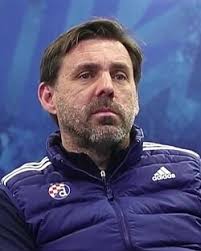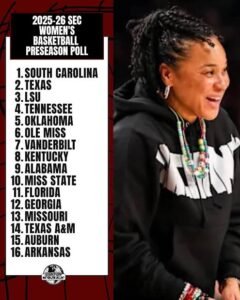În ciuda provocărilor continue, Željko Kopić renunță la funcția de antrenor principal al FC Dinamo București.

Željko Kopić Resigns as Head Coach of FC Dinamo București Amidst Ongoing Challenges
În ciuda provocărilor continue, Željko Kopić renunță la funcția de antrenor principal al FC Dinamo București.
Željko Kopić Resigns as Head Coach of FC Dinamo București Amidst Ongoing Challenges
Bucharest, Romania – June 4, 2025
In a development that has sent shockwaves through Romanian football, Željko Kopić, head coach of FC Dinamo București, officially announced his resignation and immediate departure from the club. The Croatian tactician, who took charge of Dinamo in 2023, leaves the team in a period of both promise and uncertainty, with fans and analysts alike now speculating about the future direction of one of Romania’s most storied football institutions.
A Sudden But Not Entirely Unexpected Exit
The resignation was confirmed through a brief but solemn statement released by the club early Wednesday morning:
> “FC Dinamo București confirms the resignation of head coach Željko Kopić. We thank Mr. Kopić for his dedication, professionalism, and contributions to the club during his tenure. We wish him all the best in his future endeavors.”
Sources close to the club suggest that the decision came after a series of intense internal discussions over the last several weeks. While the club did not cite specific reasons for the departure, insiders point to a combination of disappointing results, behind-the-scenes disagreements, and the immense pressure of rebuilding a once-dominant force in Romanian football.
Kopić’s Journey with Dinamo
Željko Kopić arrived in Bucharest with a respectable reputation, having previously managed Croatian sides such as Hajduk Split and Slaven Belupo, as well as holding technical roles in various European clubs. His appointment in 2023 was met with cautious optimism by Dinamo fans, who hoped his tactical knowledge and calm demeanor could guide the club through a turbulent phase.
During his time in charge, Kopić oversaw a much-needed transition. With Dinamo having suffered relegation from Liga I in 2022 for the first time in its history, his arrival coincided with the club’s ambition to return to the top flight. Under his stewardship, Dinamo did achieve promotion, and despite financial constraints and squad limitations, the team managed to hold its own in Liga I during the 2024-25 season.
However, a string of inconsistent performances, coupled with rumors of internal friction with management and the lack of significant progress in the Romanian Cup, seemed to diminish the patience of both fans and club executives.
The Tipping Point
The last few weeks saw increasing pressure on Kopić. Dinamo suffered back-to-back defeats, including a painful 3-1 home loss to rivals Rapid București, a result that intensified scrutiny from supporters. Chants of “Demisia!” echoed in the stands, and online forums were flooded with criticism of the team’s style of play, lack of offensive creativity, and defensive lapses.
Following that loss, Kopić hinted at dissatisfaction in a post-match press conference:
> “There are things happening beyond the pitch that affect our performance. The players are giving their best, but rebuilding a club like Dinamo takes more than just tactics and training.”
Such comments, interpreted by many as a veiled critique of the club’s upper management, may have contributed to the breakdown in relations and his ultimate decision to step down.
Reaction from the Football Community
News of Kopić’s resignation was met with mixed reactions. Some pundits praised his efforts in stabilizing Dinamo during a chaotic period, while others felt his impact was ultimately limited.
Romanian football journalist Andrei Popescu noted:
> “Kopić inherited a mess and brought some order, but at a club like Dinamo, results matter above all. The fans are passionate and demanding, and while he did well to achieve promotion, the club didn’t push on from there.”
Former Dinamo midfielder and fan favorite Florentin Petre was more sympathetic:
> “Željko was a professional. He didn’t have the best conditions, and yet he managed to bring some dignity back to the team. Whoever comes next must continue the work he started.”
What’s Next for Dinamo?
The club is now tasked with finding a new head coach at a crucial point in its development. With the summer transfer window approaching and preparations for the new season underway, Dinamo must act quickly to secure a replacement capable of building on the foundation laid by Kopić.
Several names have already been floated as potential successors, including:
Dario Bonetti, the Italian coach with previous stints at Dinamo, known for his ability to connect with the fans and handle pressure.
Mihai Teja, a Romanian tactician with experience across multiple Liga I clubs.
Costel Gâlcă, another former international who could bring a fresh perspective and tactical discipline.
The club has not yet confirmed a shortlist or timeline for an appointment, but insiders suggest that an interim coach may be named within the week.
Kopić’s Legacy
Despite his premature exit, Željko Kopić will be remembered as a stabilizing figure during one of Dinamo’s most chaotic modern eras. He led the team back to the top division, promoted several young talents from the academy, and conducted himself with dignity amidst financial and organizational turmoil.
His tactical approach, often pragmatic and focused on defensive solidity, may not have endeared him to all fans, but it served a purpose in shoring up a team that had lost its identity.
In his parting message shared on social media, Kopić wrote:
> “I am grateful for the opportunity to lead a club with such history and passion. I thank the players, staff, and supporters who stood by the team. I leave with a heavy heart but with pride in what we achieved together.”
A Club at a Crossroads
As Dinamo București faces yet another turning point in its storied history, the road ahead remains uncertain. The club’s ambitions to restore its status as a powerhouse in Romanian football hinge not only on its next coaching appointment but also on structural reforms, financial stability, and genuine support from stakeholders.
For the fans, Kopić’s departure is yet another chapter in a decade marked by instability. But with change comes opportunity, and if history has shown anything, it’s that Dinamo has a remarkable ability to rise from adversity.
As one passionate supporter tweeted shortly after the announcement:
> “Kopić leaves with respect. But Dinamo remains.



